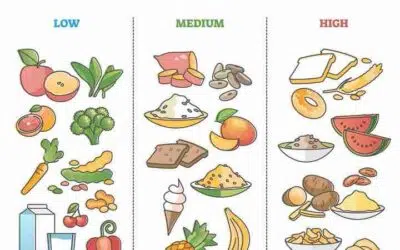Heartburn is a painful occurrence that many people experience, some more than others. If you’re like many people who deal with heartburn, you’re more than likely to be looking for relief from heartburn symptoms, such as acid reflux and chest pain. There are many...
Blog
News & Events
Follow our blog for health tips, news, recipes, & more!
Glycemic Index
The glycemic index (GI) is a tool used to promote better blood sugar management. This is done by giving a value to specific foods for how much they will increase blood sugar levels. Many things can affect a food’s GI including nutritional composition, cooking method,...
Adaptogens
Adaptogens are a class of herbs that help your body resist and build a tolerance to emotional and physical stress. According to The American Institute of Stress, 33% of people report feeling extreme stress. The physical effects of stress on your body can affect your...
Specific Carbohydrate Diet
The Specific Carbohydrate Diet is an elimination diet that removes certain types of carbohydrates. It is a very strict grain free, lactose free, and sucrose free diet. This diet is targeted for those with gastrointestinal disorders, including IBD, IBS, Crohn’s...
Gluten Free Diet
A gluten free diet is a way of eating that excludes all foods that contain gluten. Gluten is in the family of proteins found in wheat, barley, rye and triticale. While this glue-like property gives bread it’s chewy and satisfying texture, it also can leave many people...
Fermented Food Diet
The addition of fermented foods in your diet is key to obtaining optimal health because it enhances diversity of gut microbes and decreases inflammation in the gut. Certain proteins, such as interleukin 6 that have been linked to conditions such as Type 2 diabetes and...






